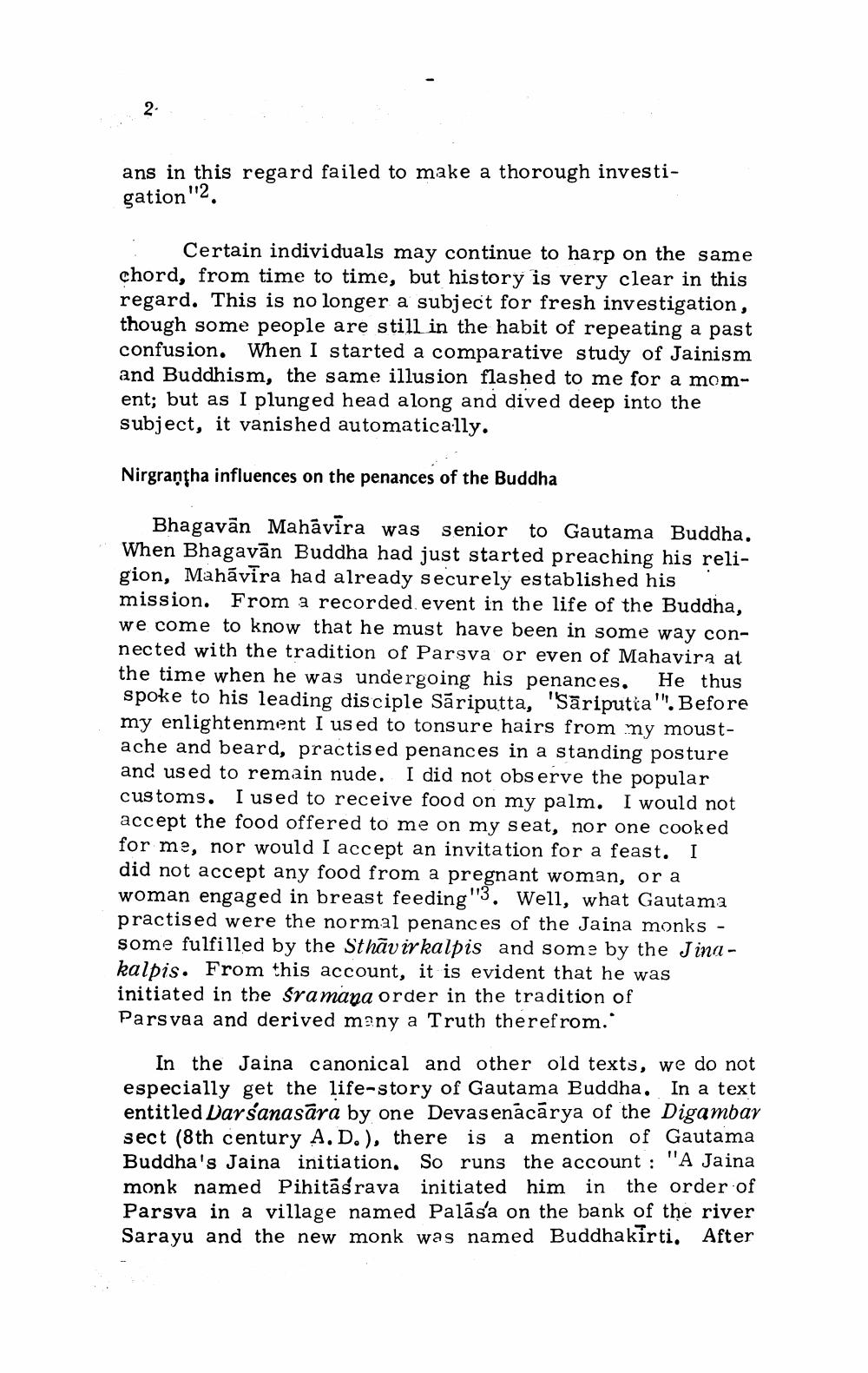________________
ans in this regard failed to make a thorough investigation"2.
Certain individuals may continue to harp on the same chord, from time to time, but history is very clear in this regard. This is no longer a subject for fresh investigation, though some people are still in the habit of repeating a past confusion. When I started a comparative study of Jainism and Buddhism, the same illusion flashed to me for a moment; but as I plunged head a long and dived deep into the subject, it vanished automatically.
Nirgrantha influences on the penances of the Buddha
Bhagavan Mahāvira was senior to Gautama Buddha. When Bhagavān Buddha had just started preaching his religion, Mahāvira had already securely established his mission. From a recorded event in the life of the Buddha, we come to know that he must have been in some way connected with the tradition of Parsva or even of Mahavira at the time when he was undergoing his penances. He thus spoke to his leading disciple Sāriputta, "Sāriputia''. Before my enlightenment I used to tonsure hairs from my moustache and beard, practised penances in a standing posture and used to remain nude. I did not observe the popular customs. I used to receive food on my palm. I would not accept the food offered to me on my seat, nor one cooked for me, nor would I accept an invitation for a feast. I did not accept any food from a pregnant woman, or a woman engaged in breast feeding"3. Well, what Gautama practised were the normal penances of the Jaina monks - some fulfilled by the Sthāv ir kalpis and some by the Jina - kalpis. From this account, it is evident that he was initiated in the framana order in the tradition of Parsvaa and derived many a Truth therefrom."
In the Jaina canonical and other old texts, we do not especially get the life-story of Gautama Buddha. In a text entitled Dar sanasara by one Devasenācārya of the Digambar sect (8th century A.D.), there is a mention of Gautama Buddha's Jaina initiation, So runs the account : "A Jaina monk named Pihitasraya initiated him in the order of Parsva in a village named Paläsa on the bank of the river Sarayu and the new monk was named Buddhakirti. After




